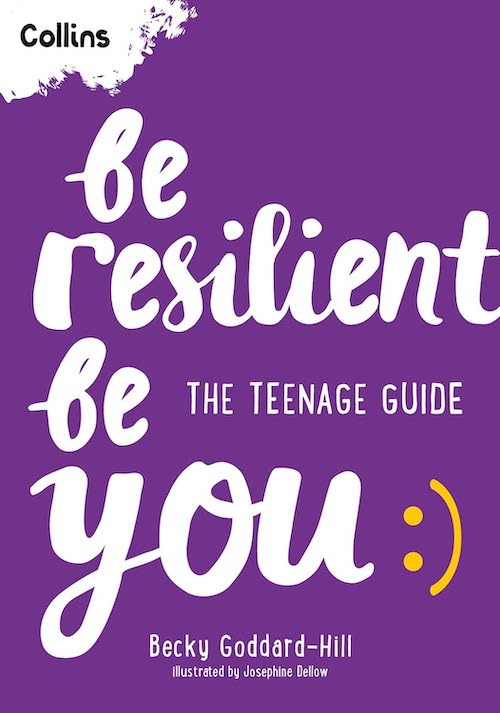
How can we help teenagers adopt a positive approach to problem solving?
Resilience is something I’ve thought about a lot as Flea has gone through school exams, then sixth form and uni. Problems will inevitably come up during these years, but how can we help teens to face them, without stepping in and taking over?
Be Resilient Be You is a brand new guide written especially for teens, by renowned wellbeing author and psychotherapist, Becky Goddard-Hill.
The book tackles 40 different topics, each supported by neuroscience and research, with advice to help teens feel stronger and more in control during this challenging period in their lives.
I’ve been given a sneak peek at Be Resilient Be You and am taking part in the book launch tour. This means I get to show you how the book helps teens to adopt positive problem solving, so they can thrive during challenging times.

Positive problem-solving for teens
Whatever problem you are facing, the most important thing to ask yourself is the question – is there anything I can do about this?
In almost every situation there is some action you can take to solve or lessen the problem.
A problem shared is a problem halved (sometimes)
It can be tempting to moan endlessly about your problems. But moaning about your issues doesn’t solve them and only increase your focus on what’s wrong rather than how to put it right.
Complaining that you don’t understand your maths homework to your maths-hating sister is wasted energy. Asking your maths teacher or your maths-genius classmate to help you is far more useful. Sharing problems can be helpful but do consider carefully who you turn to … are they the right person to help?
Small problems
Small problems such as misplaced homework or a one-sided crush may be frustrating but try not to catastrophise Think logically about how big this issue really is by scoring it out of 10 – it will help you keep perspective.
Big problems
Big problems such as an eating disorder or being bullied need to be acknowledged and address promptly. Left un-tackled these problems could deepen and have long-term impact. This is time to turn to a trusted adult to help you consider your options. There are always options.
The science bit
Neuroscientists have discovered the teenage brain develops unevenly. The emotional area of the brain develops well ahead of pre-frontal cortex the area responsible for impulse-control. This is why in your teen years you may find you react to a problem rashly rather than think it through.
Pause for problem solving
It is important to stop and think when you have a problem about the best way to respond. Reduce impulsive reactions to problems by visualizing a big stop sign, then take a deep breath, calm yourself down and think through your options.
Give it a go
Try tacking one of your current problems using the ADAPT acronym below.
- Attitude – Adopt a positive, hopeful attitude towards your problem
- Define -Define your problem clearly
- Alternatives -Identify a variety of actions to overcome your problem
- Predict -Predict the outcome of each of the actions above and choose the one you think most likely to succeed
- Try out – Try out the action. If it doesn’t work just start again at A.
Keep practising your problem-solving skills so you feel increasing capable and confident about coping with wherever challenges arise.
Be Resilient Be You is out now.




